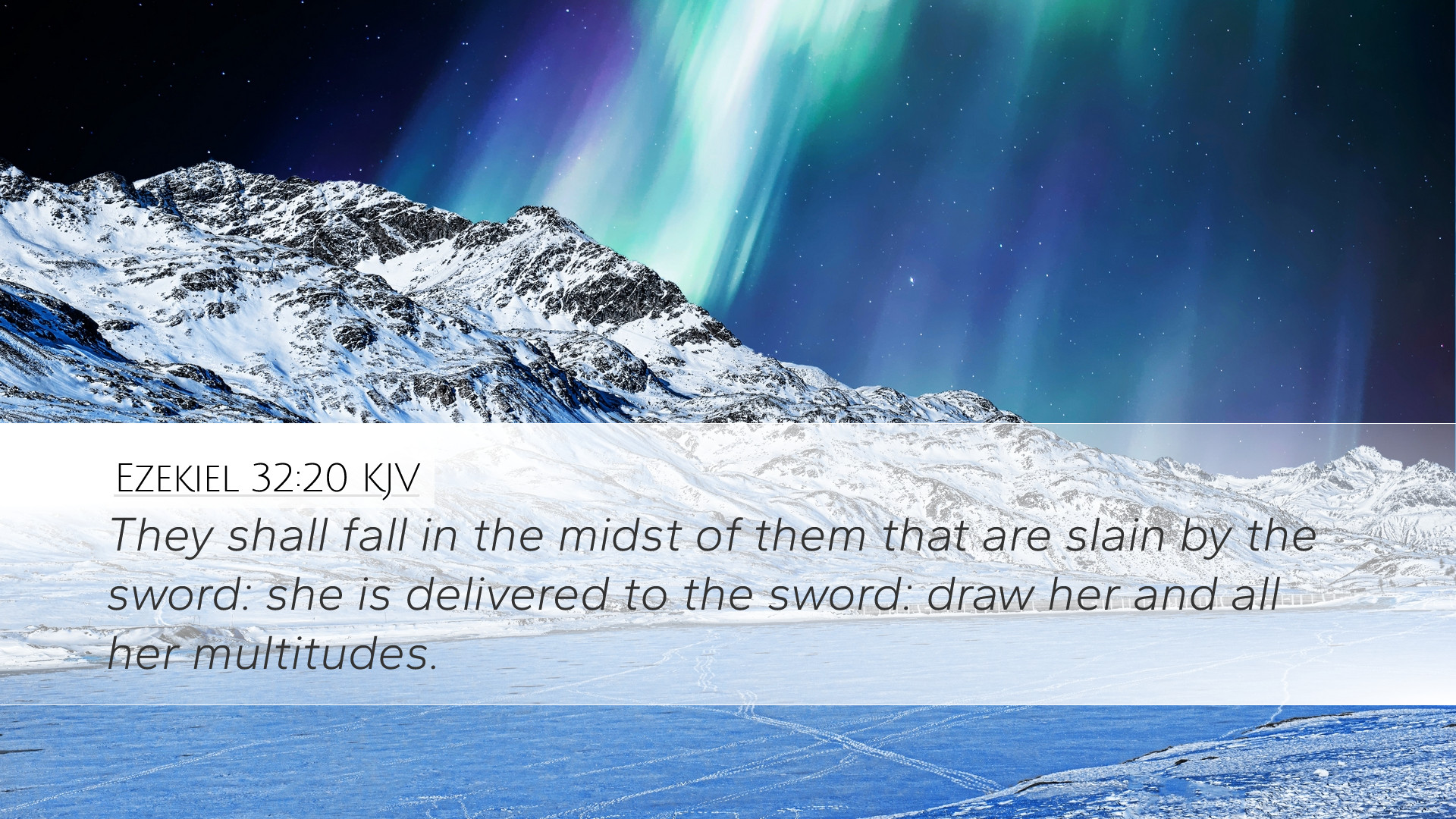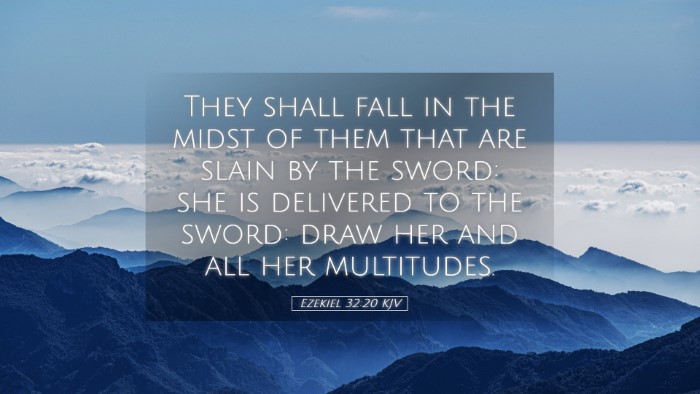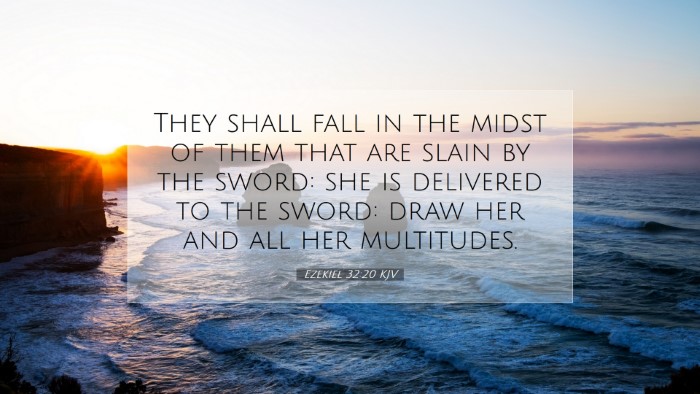Ezekiel 32:20 - A Commentary
Verse: Ezekiel 32:20 - "They shall fall in the midst of them that are slain by the sword: she is delivered to the sword: draw her and all her multitudes."
Introduction
The passage in Ezekiel 32:20 stands as a profound declaration of God’s judgment against the nation of Egypt. Ezekiel, as a prophet, often employs vivid imagery and stark language to convey the weight of divine pronouncements. In this particular verse, the fate of Egypt is laid bare, discussing the concept of death as a pervasive theme in judgment. This commentary synthesizes insights from biblical scholars like Matthew Henry, Albert Barnes, and Adam Clarke, aiming to provide a thorough understanding for pastors, students, theologians, and Bible scholars.
Contextual Background
The book of Ezekiel is categorized as one of the Major Prophets in the Old Testament. Ezekiel prophesied during a critical time in Israel's history, particularly during the Babylonian exile. His messages often centered around themes of repentance, restoration, and divine judgment.
Specifically, Ezekiel 32 details the impending doom of Pharaoh and the Egyptian empire, drawing parallels to the judgment felt by various nations. It is part of a larger oracle regarding Egypt and serves to illustrate God’s sovereignty over all nations.
Commentary Insights
-
Matthew Henry’s View
Matthew Henry emphasizes the certainty of God's judgment and how it finds its fulfillment in historical events. He interprets the "sword" as a metaphor for God’s instruments of warfare and destruction, meant to execute divine vengeance upon nations that have turned against Him. Henry points out that the imagery of falling amidst the slain evokes a scene of utter defeat, where even the mighty Pharaoh, akin to other vanquished nations, cannot escape the judgment of God.
-
Albert Barnes' Analysis
Albert Barnes elaborates on the metaphorical language used in this verse, interpreting “draw her” as a call to arms, insinuating that the Egyptians are to be drawn out into glorious battle, only to meet their doom. He draws attention to the collective aspect of Egypt's downfall—“all her multitudes”—suggesting a thorough and comprehensive destruction that embodies the consequences of national pride and rebellion against God. Barnes also highlights the theological implications of divine justice, showing how such historical occurrences serve as lessons for later generations.
-
Adam Clarke’s Commentary
Adam Clarke emphasizes the importance of understanding the historical and cultural implications of Egypt's position at the time. He remarks on Egypt's hubris and its overestimation of its own strength. Clarke also draws connections between this imagery and the broader narrative of ancient Near Eastern conflicts, stressing that God’s judgment reminds contemporary readers of the necessity of humility before divine authority. He points out that the phrase “delivered to the sword” underscores the inevitability of judgment, indicating that Egypt had reached the point of no return in its defiance against God.
Theological Reflections
The themes of judgment, sovereignty, and divine justice present in Ezekiel 32:20 challenge modern readers to reflect seriously on the nature of sin and the consequences that ensue from turning away from God. The reminder that no nation or individual is exempt from God's oversight spurs believers to consider their own lives and spiritual states. Such reflections are crucial for a holistic understanding of God's character as both merciful and just.
Practical Applications
-
Call to Humility
The passage serves as a humble reminder for leaders and nations today: that pride goes before destruction (Proverbs 16:18). It compels us to acknowledge our dependence on God and to seek His guidance in all matters.
-
National Accountability
Pastors and church leaders can utilize this verse to stress the importance of national accountability before God, advocating for prayer, repentance, and collective humility as a people.
-
Hope in God’s Justice
Finally, believers can take heart in knowing that even amid judgment, God’s righteousness prevails. There is comfort in knowing that injustice will ultimately be addressed—serving not only as a warning but also as a source of hope.
Conclusion
Ezekiel 32:20 encapsulates a pivotal moment of divine pronouncement against Egypt, steeped in themes of accountability and justice. This verse beckons us to a deeper understanding of God’s sovereignty and serves as an exhortation for humility and repentance. The insights gleaned from the commentaries of Matthew Henry, Albert Barnes, and Adam Clarke enrich our study and application of this passage, reminding all of us—pastors, students, theologians, and scholars—of the ever-relevant truths found within Scripture.


